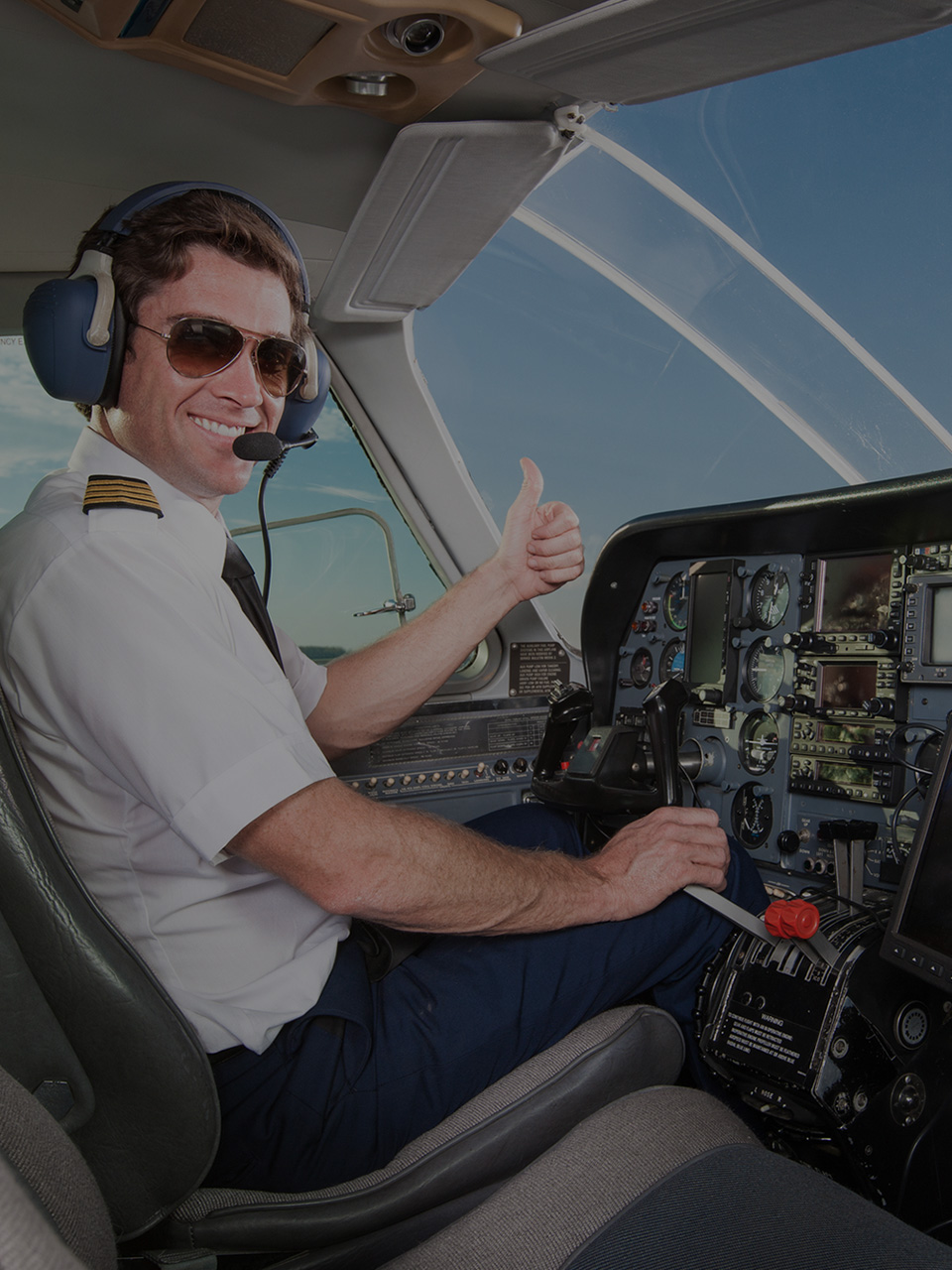Apart from operating an aircraft (for commercial and business purposes), the airline pilot has several other duties and responsibilities. This story will delve more into the career of a pilot, along with the requirements to be one...

Tap to Read ➤
What does an Airline Pilot Do?
Marlene Alphonse


Apart from operating an aircraft (for commercial and business purposes), the airline pilot has several other duties and responsibilities. This story will delve more into the career of a pilot, along with the requirements to be one...

The recent times has seen an increase in the number of people opting for air travel. Though a bit expensive, this is one of the most comfortable and quickest ways to reach any destination. With the rise in the number of passengers, airline companies naturally require many airline pilots.

The main duty of an airline pilot is to fly the airplane and navigate it towards the intended destination safely, sans problems. Pilots can be commercial (flying airplanes meant for travel and cargo) as well as in military.

An airline pilot is a glamorous position, and those in it have quite a reputation in society. These days many youngsters are quite keen on becoming an airline pilot, owing to the excitement and attractive remuneration this career offers.

Job Description of an Airline Pilot
An aircraft is normally operated by captains, copilots (or first officers) and flight engineers (or second officers). There are usually two pilots in the cockpit of an airplane - the captain (or the chief officer) and the co-pilot. The captain is the senior-most personnel, and has authority over his juniors.

The main job of an airline pilot is to ferry passengers and cargo safely on a commercial, leisure and business basis. The pilot may operate the aircraft on a national or international basis. Apart from flying the aircraft, the airline pilot also has several other tasks to comply. Here are some of the things that the airline pilot does.

- Checking out the information on number of passengers, weather conditions and route to be take are accurate and match with the data provided.
- Analyzes the flight schedule and checks if the flying altitude and route are correct.

- Supervises the fueling of the aircraft and loading of goods. He also keeps a note on how much fuel is required for the entire trip.
- Before take off, the airline pilot checks if all the controls are in proper working condition and reports if there are any problems.

- Checks the operations systems and navigation route pre-flight.
- Before and during the flight briefing and contacting the cabin crew.
- Updating passengers during the flight on the public address system.

- Transmitting information to the air traffic control regarding take off and landing.
- Monitors the weather conditions, position and technical performance of the aircraft and also keeps a check on the air traffic.
- Updates the logbook to take note of any problems, incidents and weather conditions during the flight. At the end of the flight writing a brief report on them.
- Taking quick decisions in case of emergencies in the flight and reacting promptly regarding environmental alterations.
How to Become an Airline Pilot
These days, an airline pilot is one of the most sought after careers, with the challenges and perks it comes with. Many individuals are aspiring towards becoming commercial airline pilots owing to the attractive salary and remuneration that it offers. Here are some of the educational requirements that will help you qualify to fly an airplane.
- As with any career, in order to become a full-fledged airline pilot, one needs to obtain a degree. For becoming an aircraft pilot one needs to qualify for the same. A degree in flight engineer, along with math, physics and English is preferred, after which the candidate may have to undergo extensive training.
He should enroll in a flight school in order to gain practical experience regarding flying and operating the aircraft.
- Aspiring pilots may be required to spend six to seven weeks in the flight school to train in a ground simulator. This is usually followed by the candidate obtaining experience for operating the aircraft.
The duration for this training session may last for up to 250 hours. Training for air traffic, weather and altitude monitoring is also provided to the individual.
- License can be obtained only after completion of the degree. For this extensive training, in terms of theoretical as well as practical training. The prospective candidate should also undergo medical tests to obtain clearance regarding good health, mental fitness and vision.
- Once the pilot, who is 18 and above, has completed 250 hours of flying, he is liable for the commercial pilot's license as approved by the Federal Aviation Administration (FAA). Along with the flying hours the individual may also have to pass a written exam.
Physical examination is also an important criterion for obtaining the license. According to the regulations of the FAA, an airline pilot should also meet the additional requirements of passing the aptitude tests and should have a minimum of 1,500 flying hours.
- Once you are trained pilot, you can earn an average salary of $100,000 on an annual basis. The salary may also increase with experience and flying hours. Apart from this, an airline pilot is also given the benefits of health and life insurance. The age of retirement for a pilot is 65 after which the individual may also receive retirement benefits.
Becoming an airline pilot is quite a challenge and there are many criteria that need to be given priority. It can also be a exhausting job, with jet lags, irregular schedule and long periods of time away from home. However, apart from all these it is one of the most exciting careers that one can get into. All the best! Get ready to scale the skies!